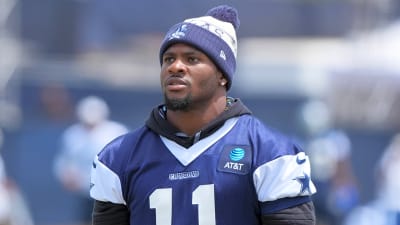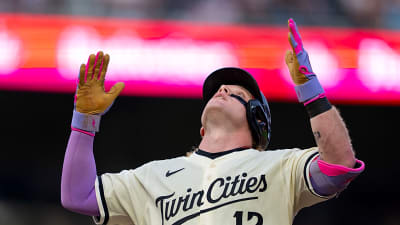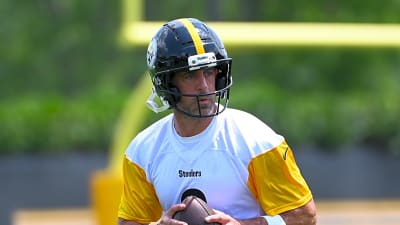
In a move that sent shockwaves through the NBA, the Dallas Mavericks made the unthinkable decision to trade Luka Doncic to the Los Angeles Lakers in exchange for a package centered around Anthony Davis. Doncic, a perennial MVP candidate and the player who just led Dallas to the NBA Finals last season was widely seen as the franchise’s cornerstone for the next decade. However, behind the scenes, there were growing concerns that led the Mavericks to pull the trigger on this blockbuster deal.
The decision wasn’t just about basketball but about long-term stability, fit, and the harsh reality of building a sustainable contender. From concerns about Doncic’s conditioning to the uncertainty of his next contract, the Mavericks saw this as the right time to move on. That also means Doncic is not the one to initiate a trade out of Dallas and is reportedly stunned, meaning this was purely a management decision.
Meanwhile, acquiring Davis gives them a defensive anchor to complement Kyrie Irving, along with a more balanced roster to compete for a championship.
While Mavs fans may still be in disbelief, there were clear reasons why Dallas chose to part ways with their 25-year-old superstar. Let’s break down the four biggest factors that pushed the Mavericks to make one of the most shocking trades in NBA history.
1. Luka Doncic’s Weight And Conditioning Issue
One of the biggest concerns that led to Luka Doncic’s departure from Dallas was his ongoing weight and conditioning struggles. Multiple reports surfaced that Doncic had ballooned up to 270 pounds this season, a far cry from the fitness level expected of a franchise player.
While Doncic’s skill set remains generational and he is better than the vast majority of the league even when out of shape, the Mavericks' front office, led by GM Nico Harrison, was growing increasingly frustrated with his inability to maintain peak physical shape, especially for deep playoff runs. We did see Doncic get gassed against the Boston Celtics in the NBA Finals last year, whether that was down to conditioning or the fact that the opposition was so good.
Harrison also made it clear that the organization was shifting toward a defense-first mentality, and Doncic’s conditioning raised concerns about his long-term durability. The Mavs had seen their superstar wear down late in seasons, and with a massive supermax extension looming, they questioned whether they wanted to commit to a player who hadn’t shown the discipline needed to be in elite shape year-round.
Instead, they opted for Anthony Davis, a proven two-way star, to build a roster more in line with their championship aspirations. You can't deny a duo of Kyrie Irving and Anthony Davis looks promising, but we have to wait and see how it plays out.
2. Luka Doncic's Supermax Contract This Summer
Luka Doncic was eligible to sign a five-year, $345 million supermax extension with the Mavericks this summer, but there were lingering doubts about whether he would commit long-term. While negotiations could have taken place, whispers around the league suggested that Doncic wanted to see what kind of roster Dallas could build before fully committing.
The front office feared that if they failed to construct a true championship contender around him, he might hesitate to lock himself into another long-term deal. Rather than risk an uncertain future, the Mavericks decided to take control of the situation by making the move now.
By acquiring Anthony Davis, they ensured they got a defensive anchor in return instead of waiting for Doncic to potentially leave down the road. This proactive decision also gave them roster flexibility moving forward, instead of being held hostage by a superstar unsure of his long-term commitment. It has to be known that Doncic is no longer eligible for the supermax extension with the Lakers and will almost certainly sign a long-term deal for less money.
3. Luka Doncic Might Request A Trade In Offseason
There was growing speculation that if the Mavericks fell short of another NBA Finals appearance, Luka Doncic could consider requesting a trade this summer. With the Western Conference loaded with elite teams, the path back to the Finals was anything but guaranteed (even with the acquisition of Klay Thompson this summer), and another early playoff exit would have put immense pressure on the front office.
If Doncic had made a trade request at that point, Dallas would have lost significant leverage, limiting their ability to get a strong return.
By trading him now, the Mavericks were able to dictate the terms of the deal rather than scrambling to make a move under duress. They secured Anthony Davis, who, despite his own injury history, is a top-tier talent when healthy and fits their shift toward a more defense-oriented identity.
While it’s never easy to trade a generational superstar, Dallas believed this was the best moment to maximize value before the situation spiraled out of their control. This is all speculative and we won't know what would have happened, but at least the Mavericks don't have to worry about this now.
4. Luka Doncic Is Not A Good Defender
Nico Harrison’s philosophy was simple: defense wins championships. That’s why, despite Luka Doncic’s offensive brilliance, the Mavericks felt they needed to move in a different direction.
Doncic has never been known for his defensive ability, and while his size and IQ allow him to make plays at times, he has consistently been targeted in high-stakes matchups. His lack of lateral quickness and conditioning issues only added to the Mavericks’ concerns about building a true contender around him.
In contrast, Anthony Davis is a proven defensive game-changer. The nine-time All-Star has anchored elite defensive teams throughout his career and gives Dallas a legitimate interior presence alongside Dereck Lively II and Daniel Gafford.
With Davis, the Mavericks believe they can construct a championship-level defense while still maintaining offensive firepower with Kyrie Irving and Klay Thompson. In the end, moving on from Doncic was about mainly reshaping the franchise’s identity around a defense-first mindset.
More must-reads:
- Surprising update emerges about Jayson Tatum's recovery
- Report: Knicks made a signing based on Giannis Antetokounmpo trade belief
- The 'NBA Summer League MVPs' quiz
Breaking News
Trending News
Customize Your Newsletter
 +
+
Get the latest news and rumors, customized to your favorite sports and teams. Emailed daily. Always free!








